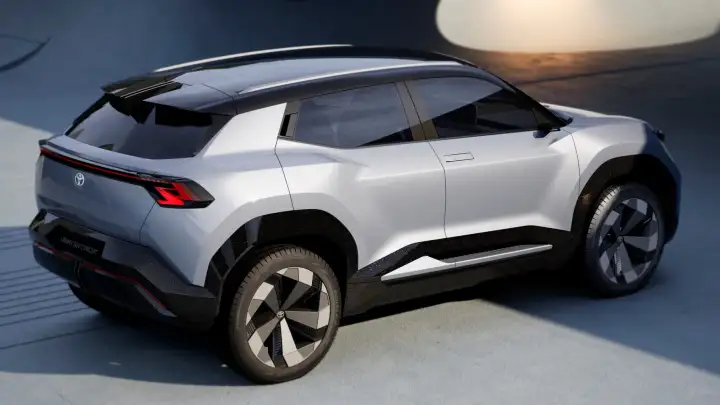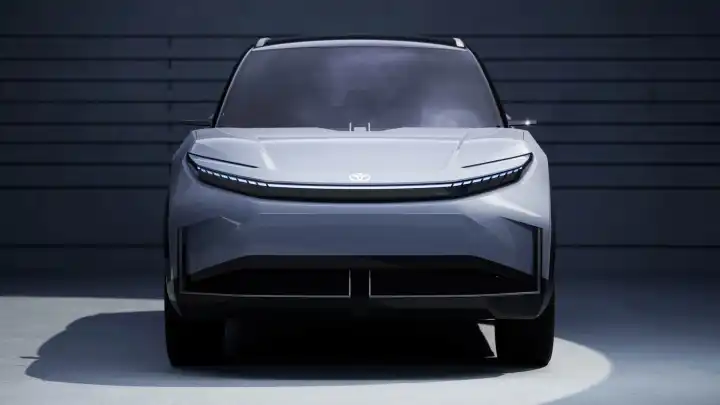Toyota could be finally ready to take electrification a little more seriously. The Japanese automaker has been extremely slow to manufacture electric cars — but it recently took the wraps off of the new Toyota Urban, which will be Toyota’s attempt at a low-cost, mass-produced EV.
In particular, the Urban could go head-to-head with cars like the Volvo EX30 and Hyundai Kona Electric as another small SUV that’s built to be an affordable alternative to higher-cost cars like the Tesla Model Y, Hyundai Ioniq 5, and Kia EV6. Toyota unveiled the car at its annual Kenshiki Forum in Brussels.

It’s important to note that, at this point, the Urban is really just a concept — and it’ll likely get a new name by the time it’s ready for production. Toyota has been running with the “bz” naming for its electric cars, and that’s likely to continue.
According to Toyota, the Urban’s design was inspired by the Toyota Yaris Cross, which is also a compact crossover with a relatively thick build. The company says that it has maximized interior space to offer more room for passengers and cargo.
The car will offer two battery options, with a more accessible entry-level model and a more expensive long-range model. Unfortunately, actual range hasn’t been revealed — though if Toyota leverages its solid-state battery tech, it could be very impressive.

This, however, could just be the beginning for Toyota. The company says that the Urban is one of five new electric models that it will release in Europe by 2026. Thankfully, we likely won’t have to wait long to hear more details about the Toyota Urban — a production model is expected to be shown off in early 2024.
While the Urban will launch in Europe, we have yet to find out if a U.S. version of it will ever be released. If it does, it will go up against significant competition — plenty of companies are starting with crossover-size cars in their move toward electric vehicles.



